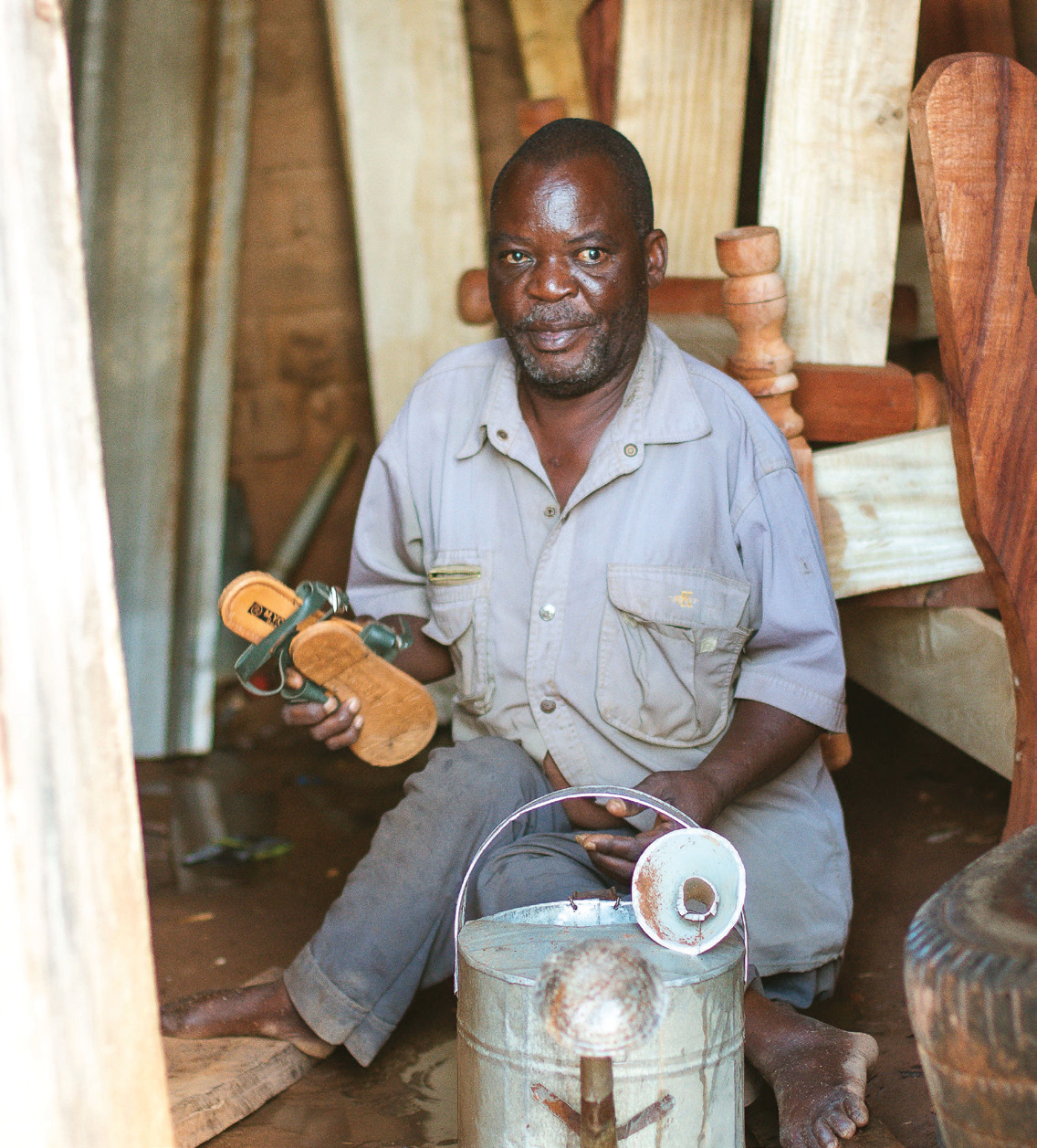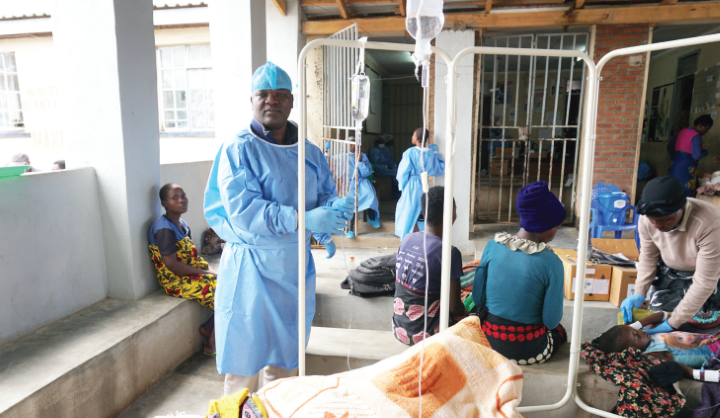Shoe doctor wants every child vaccinated
Malawi’s first wild poliovirus case in 30 years has left health workers racing against time to vaccinate every child aged below five.
As health surveillance assistants (HSAs) hop door-to-door to leave no child behind, polio survivor Nyuma Mkandawire, who mends shoes and makes water cans at Enukweni Trading Centre in Mzimba North, cannot just mind his business.

From his shop, the 54-year-old father of seven advises his customers and passers-by to get their children immunised against the disease that paralysed his left arm and leg in 1968.
“I know how polio affects one’s health and chances in life. It’s not a curse, but just a devastating disease prevented through a simple vaccine, just a shot in a child’s mouth,” he says, stitching a leather shoe.
Mkandawire’s handwork symbolises his triumph over adversity. He recalls being locked up at home for weeks while his peers were going to school.
The shoe doctor, who now uses a wheelchair, says the paralysed limbs exposed him to debilitating treatment and dashed his dream of becoming a medical doctor.

He says: “I don’t want any child to go through what I endured.
“My neighbours used to call me demeaning names, saying nothing good could come from me, but this did not put out my burning desire to become self-reliant.”
Every day, his work attracts scores of customers, who leave him about K20 000 richer and get to hear how a simple, safe and effective vaccine can avert deaths and permanent paralysis caused by polio.
“I am a living example, but disability is not inability,” he states. “I was saved by concerned neighbours and Malawi against Polio [MAP] officers who persuaded my parents to send me to school like any other child.”
Mkandawire completed secondary school in Bolero, his hometown in Rumphi.
Thanks to his tenacity and ambition, Malawi Council for the Handicapped trained him in shoe-making. Two decades later, he honed skills in tin-smithing with support from MAP.
“I feel lucky because many Malawians paralysed by polio now live in poverty, nursing shattered dreams. This is the reason parents must ensure every child is vaccinated, even those who have received all four routine doses,” he implores.
Mkandawire was happy when Malawi kicked out polio in 1992.
However, the newly confirmed case in Lilongwe, almost 400km south of Enukweni, has left him worried about a possible outbreak. This is Africa’s first case since the virus was last detected in Nigeria in 2016.
“I have hope that we can roll back the possible wave. We have done it before and we know what to do we must vaccinate every child just as we did in the early 1990s,” he states.
The United Nations Children’s Hund (Unicef) is supporting Malawi, Zambia, Tanzania and Mozambique to vaccinate all children aged below five.
Before the campaign in Malawi, Unicef in partnership with the World Health Organisation (WHO) and the Ministry of Health trained 13 500 community health workers, volunteers, district health promoters and traditional leaders. It also procured and delivered 6.8 million polio vaccine doses to all 29 districts, targeting 2.9 million children in the first two rounds.
Unicef also installed 170 new vaccine refrigerators nationwide, repaired 135 nonfunctional cold chain equipment, distributed 250 vaccine carriers and delivered 100 cold boxes.
This has helped constrained health facilities keep the vaccines safely chilled for children to receive the oral shot right where they live.
Unicef vaccine specialist Lokesh Sharma says a nationwide assessment conducted before the campaign revealed that most districts had just enough cooling facilities required for routine immunisation despite mounting pressure to safely store the bivalent oral polio vaccine doses and Covid-19 jabs.
He explains: “Vaccine logistics and cold chain are crucial deliverables for Unicef in all territories where we work, so we have to give this 100 per cent to ensure all health facilities have sufficient supplies of potent vaccine doses so that every child is protected.”
This is good news for HSAs such as Stella Ng’oma, who braved the scorching sun, rainstorms and long walks to vaccinate children in communities surrounding Enukweni Health Centre.
She explains: “The blue cool boxes keep the vaccine safe for up to eight hours, giving me ample time to do the work that I love most—giving people in my community life-saving services and accurate information.
“This morning, I have already vaccinated over 40 children. It shows that parents understand their role in safeguarding children, even those who completed all the routine doses.”
And Iris Munthali was happy to see her two daughters, four year old Violet and two year old Nailes being vaccinated right at home in Manganani Village, Traditional Authority Mtwalo in Mzimba.
“My children are now protected from polio, which can have lasting impacts on their lives and productivity.
“Interestingly, I didn’t endure any extra cost or long walk. The HSA just came and squeezed the doses in their mouths. It’s that simple.”





